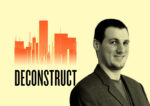In Downtown Los Angeles, one out of four offices sits empty. But landlords have come up with a sweetener to help draw tenants back to their cubicles: ground-floor retail.
Downtown property owners and leasing experts at Bisnow’s Downtown Los Angeles State of the Market confab at the AON Center looked to the power of shops and restaurants to lure workers back to the office, Bisnow reported.
“You’re competing against the return to work,” Douglas Brown, vice president of leasing at Lincoln Property in Dallas, told the crowd.
“You need to offer amenities, you need to offer an experience,” he said. “Something that’s in your building. That’s going to get people excited. That’s going to make that main decision-maker believe that this is going to help get his people back in the office.”
The retail presence along the sidewalk is “hugely important” to the success of office buildings, Brown told attendees. It’s also something that speakers said contributes to the successful rebound of Downtown.
In central Downtown L.A., office vacancy was 26 percent in December, according to Cushman & Wakefield, following a broad shift to hybrid and remote work. Offices in non-central Downtown were 33 percent vacant.
The office exodus in Los Angeles and nationwide has led to plummeting commercial valuations, rising defaults and worsening traffic for local businesses.
Recent L.A. offices have traded for a 50 to 60 percent discount, with prices as low as $130 per square foot, setting new floors in some submarkets, according to The Real Deal.
Downtown L.A. has become a graveyard for Class A offices. In December, Shorenstein sold a Downtown tower to Carolwood for $147.8 million, or $134 a square foot. Some industry insiders have cautioned buyers that towers in the neighborhood will never return to healthy occupancy.
“I do think it’s very important to understand that you have to give people a reason to want to come to work outside of their office,” Carolwood principal Andrew Shanfeld told the Bisnow crowd.
Shanfeld and his Carolwood partner, Adam Rubin, spoke about the food retailers they are bringing to the ground floor of the tower, plus upgrades to the gym and a new spa — all aimed at “mak[ing] your life a lot easier at work.”
Occupied storefronts mean more feet on the street, which could lead to more dollars spent — and a widespread feeling of vibrancy and safety for those traversing those streets.
At a discussion panel on Downtown L.A.’s office struggles sponsored by The Real Deal in September, one landlord said “a turnaround may require the government to clean up the streets and make Downtown safe.”
Though office workers haven’t returned in full to Downtown, it may be on the upswing.
In a January survey of Downtown L.A. residents, denizens reported improvements in homelessness, crime, cleanliness and transportation compared to last year.
Brown said some landlords will need to accept some losses on the retail front in order to create an atmosphere that’s inviting to workers. That may mean property owners offering subsidies to restaurants or other fun tenants in order to create a desirable building.
“You need to be taken out of that commodity office bucket and separate yourself from the rest of the competition,” Brown said.
Justin Weiss, a vice president at brokerage Kennedy Wilson, said a quarter of a century ago, when Downtown began to see loft conversions and a flood of middle-income office workers, “exciting short-term tenants” helped build interest in Downtown.
“Rather than waiting for that national credit tenant, or that tenant that you can underwrite, that can securitize the entire term or even half of the term, let’s work on bringing in temporary tenants on a month-to-month basis, six-month leases, one-year leases, to activate the space,” Weiss said.
— Dana Bartholomew
Read more



